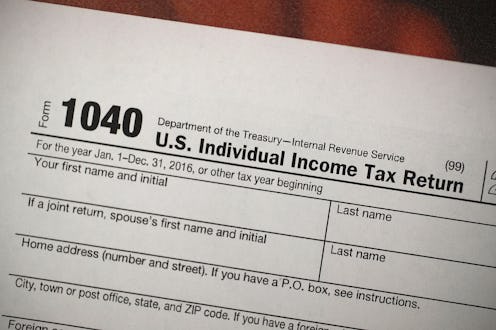
Tax season is upon us yet again, but this year is a bit different than the last. Between tax overhauls and the partial government shutdown, there's been a lot going on. With all of the recent upsets within the federal government, you may be asking yourself: will my tax refund be late?
The short answer is that it's difficult to predict. While there are discernable patterns, everyone's financial situation is unique to them. Because of this, it can be difficult to know for sure if returns will be affected on an individual basis. That being said, there are a few situations wherein a person might expect their refund to be a bit delayed.
As a reminder, the federal government was partially shut down for about a month, and the Internal Revenue Service (IRS), which handles taxes, was among the agencies affected by the closure. In statements posted to its website, the agency said that it resumed operations on Jan. 28 and was officially opening the 2019 individual tax filing season on the same day.
"The IRS will be doing everything it can to have a smooth tax season and minimize the impact on taxpayers," one statement read. "The IRS will issue refunds as soon as possible and expects many early refunds to be paid in mid- to late February like previous years."
One of the biggest challenges the IRS has faced in the last month is catching up with all the work that piled up while it was closed during the shutdown. And one of the key things that the agency has had to catch up on, according to Forbes, is making sure that tax code updates have been sent out through the software programs that many people use to file their returns every year. This is especially true for state-level updates, per Forbes, which could cause a series of delays depending on your filing situation.
Beyond the basic backlog, the IRS announced on its website that there are at least two filing statuses that could mean waiting longer to receive a refund. If you claim the Earned Income Tax Credit or the Additional Child Tax Credit, the agency has said that you may, or may have already, experienced what is called a "refund hold." This is because under the Protecting Americans from Tax Hikes (PATH) Act, the IRS is not legally allowed to process refunds for those tax credits until after Feb. 15, according to the agency's website. (This, however, is not a new rule this year. That being said, if this is your first time claiming either of those credits, it's important to know, should you notice that your refund is taking longer than expected to get to you.)
Tax filing can be tricky business, whether you're a single individual or whether you're married with several business holdings. With that in mind, if you're concerned that something could go awry with your refund processing, the agency has suggested filing as soon as you can, and online, if possible. When it comes to complicated paperwork, it can't ever hurt to be ahead of the game.